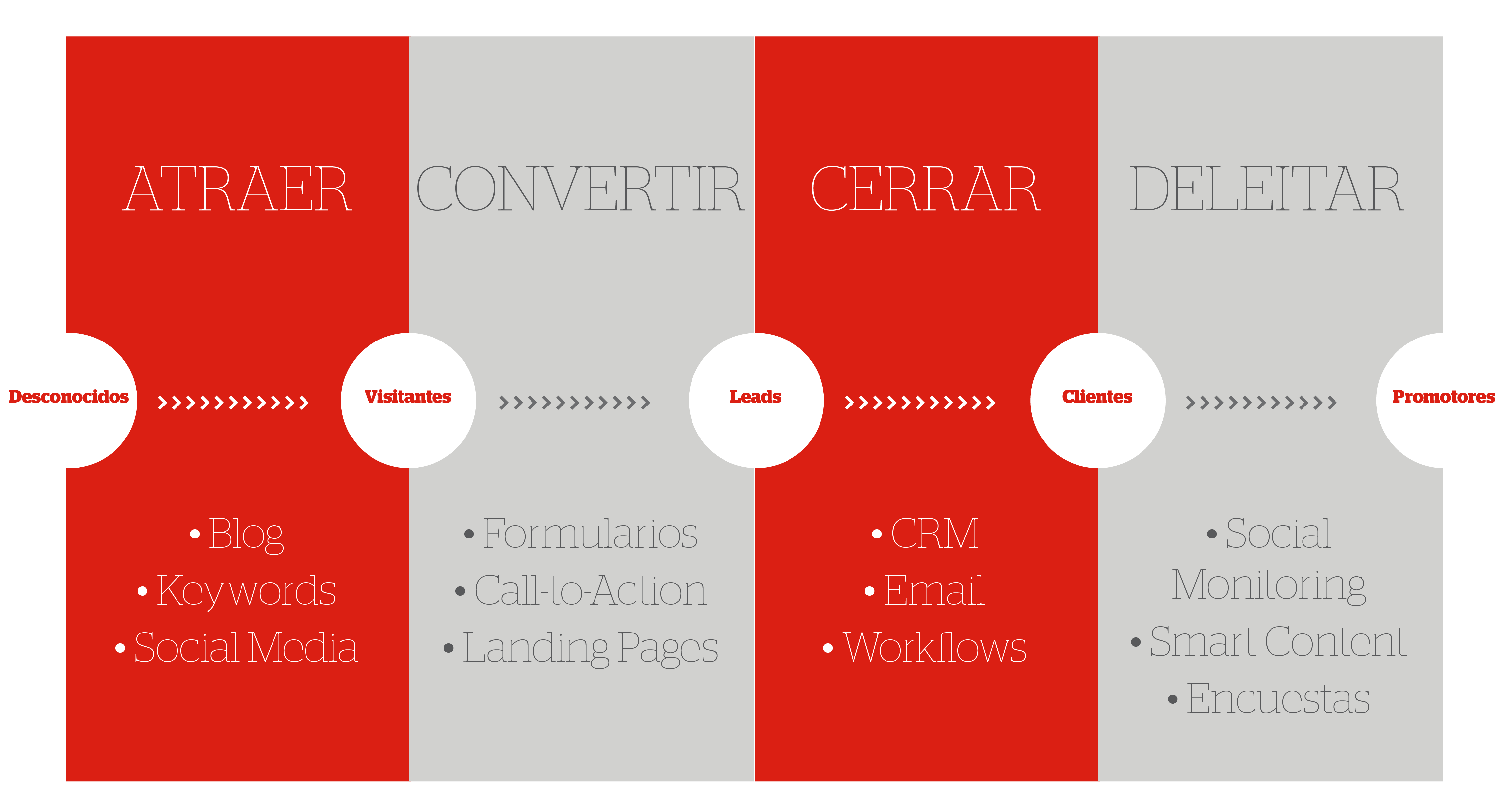Inbound marketing is a system to attract more leads, more customers and more revenue. It is a marketing methodology that does not interrupt customers with advertising messages, but delivers value at the right time. The secret is to attract and not to intercept.
{{cta(‘bb2971b9-bf36-4c36-8edc-75223dba5208’)}}
Well, now that we have defined the two concepts, let’s work on them together. That is to say, to enhance the values of your brand through the inbound methodology, offering content of specific value for each of the 4 differentiated stages:

Attraction Stage
It is clear that at this stage the most important thing is to attract our potential customers, but how to achieve this attraction through branding? You must work in depth on your corporate identity. If you think you need to give a new look to your brand, plan a modification of the tangible elements (logo, typography, stationery, internal and external communication elements…) and of the intangible elements (philosophy, language and tone of communication, objectives, values…).
Spread the word about this new proposal through social networks. Spread your new logo and generate valuable publications on different platforms. For example, if you want your new corporate identity to be related to an ecological line and a redirection of the company towards respect for the environment, publish news that revolve around this topic, create a new packaging with ecological material and get everyone talking about it.
Conversion Stage
To convert our audience into sales opportunities (leads), are necessary the so-called CTA (call-to-action found on the web, blogs, emails …) because you can not get leads without a conversion process. Leads that could eventually become customers.
But how exactly does this process work? A visitor first clicks on a CTA, a button that promotes a content offer, and links to alanding page, where they fill out a form with their contact information. Thus, it turns the unknown visitor into a known lead. After that you are directed to aThank You page where the offer is delivered to you.
And how can we work this stage with branding? Align your strategies with branded content and… voilà! Generate content linked to your brand. Try to connect with the consumer and offer them, once again, valuable content. Try to understand the audience’s needs and offer them exactly what they are looking for.
The clearest and most famous example of branded content in the marketing world is undoubtedly the commissioning of the Popeye comic strip by a spinach production company in 1929 in the United States. But there are many more.
Think of an extraordinary idea, something innovative, that surprises and generates engagement with your audience. The format is important. It can be an ebook, a video, a tweet, an event… Also try to be original with the format.
The marketing specialist and writer Philip Kotlerconducted a study that shows that the main characteristics that define the personality of a brand are: sincerity, emotion, competence, sophistication and strength. Focus on one of them, the one that you think best defines your company and is most appreciated or considered by your target audience. Work it until you create an impactful idea that attracts and satisfies your audience’s need, and deliver it in the right format.
Closing Stage
Email is one of the best marketing tools to work at this stage. Despite 70% being considered spam, email is still an important part of marketing.
Shall we talk about figures? There are currently more than 4.3 billion email accounts sending 196 billion emails every day. No other marketing channel has been so universally adopted. In addition, 95% of online consumers use their email and 91% check it daily. And since emails stay in the inbox if you don’t delete them, they have a longer shelf life than other marketing channels.
But we really like this tool because it provides a 1 to 1 relationship, more personal and more direct than many others, don’t you think? It’s your chance to make your brand resonate. Every little detail in that message, such as the design or the tone of the wording, will be part of the creation of your branding. Do not hesitate.
Etapa to Delight
In the last stage of inbound marketing we will focus on falling in love. How? Yes, yes. Enamoring our customer. A consumer of our product or service is truly a treasure. He will be the best advertiser of our brand. Therefore, you should not forget him. Work on your brand and make him believe in you, become a reference for him.
Schedule events, offer them discounts, reward them and pamper them as they deserve. Once again, put your imagination to the test and, based on the main characteristics of a brand’s personality, established by Philip Kotler, and taking into account the peculiarities of your buyer personas, design the best strategy.
You already know that the key lies precisely inaligning your marketing actions around satisfying the needs of your buyer persona, depending on what stage of the buying process they are at. Take advantage of it and boost your brand following these coordinates. We haven’t heard much about it yet, but we bet that inbound branding is the new trend.

